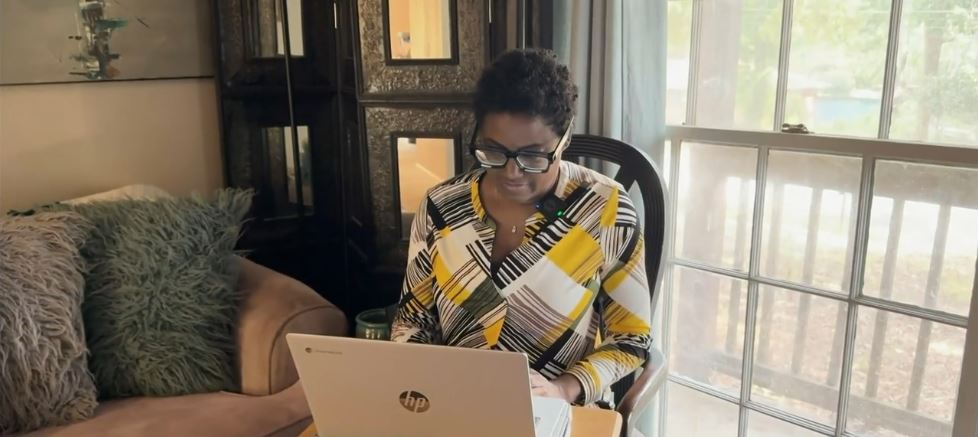Woman managing schizophrenia shares message of hope to others dealing with disorder

By Nakell Williams
Click here for updates on this story
ATLANTA (WUPA) — When Georgia resident Ashley Smith first heard that she was diagnosed with schizophrenia 20 years ago, it felt like the world stopped.
“I’ve been arrested because of my diagnosis, which was very challenging, and that’s in fact how I learned about my diagnosis, going through a high-speed chase with police and being jailed,” Smith said.
In the decades following, Smith says treatment and hope are the key to her journey—carrying her from some of her darkest days to a brighter tomorrow.
While precise numbers are hard to obtain, the National Institutes of Health estimates between 0.25% and 0.64% of people in the United States are diagnosed with schizophrenia and related psychiatric disorders. Most of these cases are diagnosed inthe late teens to early thirties.
For Smith, the diagnosis wasn’t the most difficult part.
“One of the toughest situations I’ve experienced in my recovery is being separated from my son,” she said.
Now, the 38-year-old says she knows recovery doesn’t mean being perfect. It means progress, which starts with hope.
“Hope is crucial. Through hope, I can see a better future,” she said. “Hope reassures me that I can be a parent.”
Smith says she knows hope doesn’t erase the challenges of the disorder, because she had an episode several years ago, but it does help her face them each day.
“Every morning I get out of bed, I pray, and I thank God for my medication and my support system,” she said.
Smith credits family members who have passed and her two dogs, Bella and Spike, as playing big roles in her support system.
Treatment, faith, and community, she says, are all part of her recovery, and she believes sharing her story helps reduce the disorder’s stigma.
“I can still achieve my goals. I can still walk with my head high, despite having this diagnosis, because I’m a fighter, I am a blogger, I’m a writer, I’m a friend, mother, daughter,” she said.
Her message is especially for those who are newly diagnosed, people who may feel like there is no way forward.
“Recovery is possible. Take your medication, especially if that’s what’s working for you. Stay involved in your therapy and really work on your support system,” she said.
If you or someone you know is experiencing a mental health crisis, you can call the NAMI Georgia Helpline at 1-800-715-4225.
Please note: This content carries a strict local market embargo. If you share the same market as the contributor of this article, you may not use it on any platform.